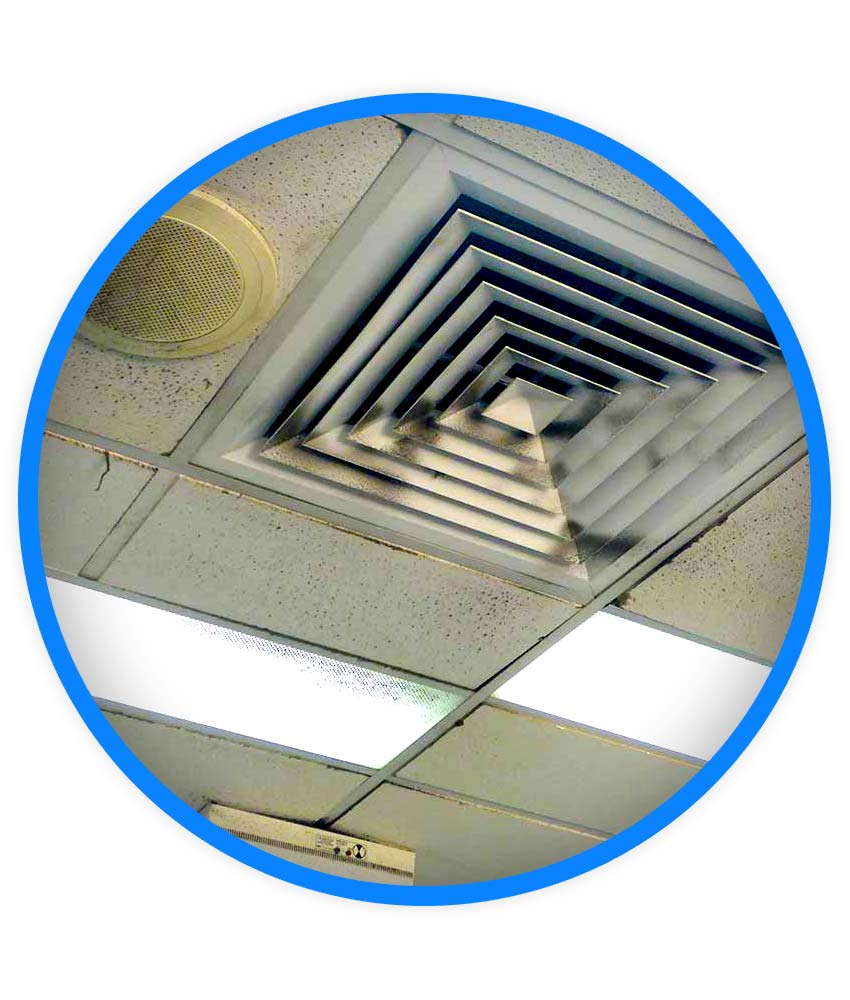A Effect of Heating, Ventilation, and Air Conditioning on Sleep Standards

An excellent night's sleep is crucial for general health and well-being, yet many people find it difficult to achieve it. A often neglected factor that can significantly impact sleep quality is the setting in which we rest, particularly the heating, ventilation, and air conditioning (HVAC) systems in our houses. Knowing how HVAC systems operate and the ways they contribute to a comfortable sleeping environment can help you enhance your sleep quality and daily performance.
In this article, we will discuss the different aspects of HVAC systems and their immediate influence on sleep. From ensuring perfect temperature and moisture levels to ensuring fresh indoor air quality, the role of HVAC is critical not just for comfort but for health as well. We will provide tips into common HVAC challenges, maintenance tips, and innovative solutions that can help create a sleep sanctuary designed to your needs. By the end, you will gain the knowledge required to make wise decisions about your HVAC system, enhancing your sleep quality for a healthier, more refreshing experience each night.
Comprehending HVAC
HVAC stands for Heating Systems, Air Exchange, and Cooling, which are the 3 key components that work together to deliver a comfortable environment in residential and industrial spaces. Heating are responsible for maintaining warmth during the cold season, while cooling units lower the temperature of the air when temperatures rise. Air circulation ensures that outside air circulates around the space, eliminating contaminants and keeping the air fresh. Understanding how these systems operate is essential for deciding wisely about upkeeping and upgrading home comfort.
The core function of an HVAC system centers on its various components, including the furnace, cooling unit, heat pump, and air ducts. The furnace or thermal pump generates heat that is distributed through ducts or heaters, while the air conditioner cools and removes moisture from the air. Proper air movement is ensured through well-placed vents and fans, making certain all areas of a house receives the necessary conditioning. Understanding of how these parts interact helps in maximizing their performance and energy efficiency.
Frequent HVAC problems can arise from insufficient maintenance, outdated technology, or inadequate sizing of the system for the space. These issues can show up in variable temperatures, rising energy bills, or a faulty system. Routine maintenance, such as filter replacements and regular tune-ups, can avoid many of these problems and prolong the lifespan of the system. By comprehending HVAC systems and their typical issues, property owners can make more informed choices in fixes or replacements, guaranteeing a comfortable living environment throughout the year.
HVAC Care and Effectiveness
Routine Heating, Ventilation, and Air Conditioning maintenance is crucial for ensuring the system functions effectively and efficiently. Filtered filtration systems, for example, enable better airflow, which allows the system to achieve a set temperature with lower energy consumption. Neglecting maintenance can lead to increased energy bills and a decline in efficiency, as dust and grime accumulate within the system. Planning routine inspections not only helps identify potential issues in advance but also prolongs the lifespan of the HVAC equipment.
A important aspect of HVAC efficiency is the fine-tuning of temperature control settings. It's vital to establish a compromise that ensures comfort while also minimizing energy use. For instance, setting the thermostat a few degrees Fahrenheit up in summer and a slightly cooler in winter can result to significant savings over time. Many modern systems offer programmable thermostats that adjust automatically, guaranteeing peak performance based on your routine and needs.
To wrap up, maintaining the area around the HVAC system clear and free from obstacles aids in effective operation. This allows for enhanced airflow and prevents excessive heat or strain on the system. Frequently checking for leaks in the ducts and ensuring proper insulation can additionally enhance energy efficiency. By taking air conditioning repair , homeowners can ensure their HVAC systems run efficiently while helping to reduced energy expenses and improved comfort in their living spaces.
HVAC's Impact on Indoor Air Quality

The quality of indoor air is essential for upholding a healthy habitat environment, and HVAC systems play a critical role in this regard. By adequately managing temperature and humidity, HVAC systems aid to minimize the growth of mold, contaminants, and other hazards that can affect air purity. Additionally, suitable ventilation provided by these systems guarantees that fresh outdoor air moves inside, reducing the amount of interior contaminants and providing a more pleasant atmosphere.
To boost indoor air standards, selecting the appropriate air filters for your HVAC system is crucial. High-efficiency particulate air (HEPA) filters can catch a considerable percentage of suspended particles, such as dirt, pollen, and pet dander. Periodically changing these filters, as part of HVAC upkeep, helps maintain optimal performance and secures that the air flowing in your home is clean and secure. Furthermore, some modern HVAC systems come fitted with sophisticated filtration systems that can additionally enhance air quality by removing smells and harmful particles.
Moisture control is another essential function of HVAC systems that directly influences interior air purity. Suitable humidity levels help stop the growth of germs and viruses, which flourish in overly damp environments. Implementing a humidity control device or confirming your HVAC system has humidity regulation features can significantly boost your home's air standards, making the residential space not only more enjoyable but also fitter. Keeping moisture in check contributes to improved respiratory health and lessens allergic symptoms, leading to improved overall quality of life for inhabitants.
